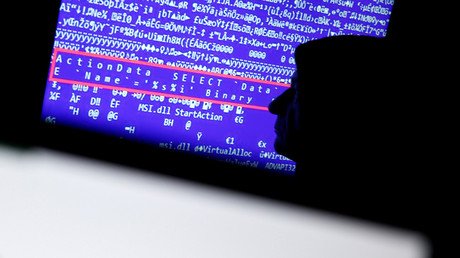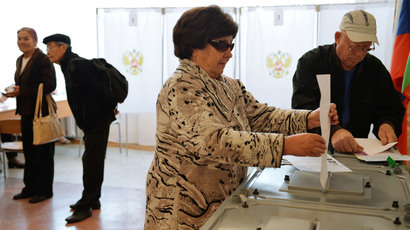String of changes in governor hits Russian regions as elections approach

A number of regional governors, including some political veterans, have resigned offering little explanation all over Russia in recent weeks. Mass media associate the reshuffle with the preparations to the 2018 presidential elections.
At the beginning of the week Russian President Vladimir Putin accepted resignations from governor of the Nizhny Novgorod Region Valery Shantsev, Samara governor Nikolai Merkushkin, and Krasnoyarsk governor Viktor Tolokonskiy. The head of the Russian internal republic of Dagestan, Ramazan Abdulatipov also submitted his resignation on Wednesday and on Thursday yet another regional leader – the head of the Yamalo-Nenetsk Autonomous Region Igor Koshin – announced his resignation from the post.
The business daily Kommersant quoted an unnamed source in the presidential administration as saying that as many as 10 governors could lose their posts in the nearest days.
So far, all recent resignations have been voluntary and no top officials have expressed dissatisfaction with those leaving. Some of the outgoing officials, including Samara’s Merkushkin and Dagestan’s Abdulatipov, said that they saw the reshuffle simply as part of a broader campaign to bring young professionals to state power.
Those appointed as acting governors are indeed young professionals, and this led the Russian mass media to suggest that the Kremlin had launched the reshuffle with the March 2018 presidential polls in mind – the implication is that it gives new leaders time to prepare for this important event. Moreover, so runs the theory, by election time voters are likely to have forgotten the grudges they held against the old governors yet unlikely to judge the performance of the newcomers too harshly, effectively “disarming” opposition candidates who build their programs on criticism of the incumbent authorities.
However, the head of Russia’s Central Elections Commission, Ella Pamfilova, connected some of the governor replacements with violations uncovered during the latest nationwide single elections date. TASS quoted Pamfilova as saying on Wednesday that she “accepted the information about the resignations with satisfaction.” She also said that her commission “had complaints about the elections” in the regions involved in the reshuffle, and expressed a belief that these facts could be connected. At the same time she refused to name the particular regions or violations that she was talking about.
Deputy PM Dmitry Kozak told Interfax that the reshuffle was a part of a nationwide check of the effectiveness of regional administrations. He also said that more resignations could take place in the near future, but noted that every governor has to make a personal decision on whether to remain on his post or resign.
Similar major reshuffles have happened before. For example, in mid-2016 Vladimir Putin replaced the heads of four regions – Sevastopol, Kaliningrad, Kirov and Yaroslavl – in just one day. But often these ahead-of-term resignations were just political tricks – the incumbents usually remained acting heads of regions until the poll, and continued to reap the benefits of this position while the opposition candidates had less time to prepare their campaigns. All the recently appointed acting governors are people new to politics.
In 2004 President Putin replaced gubernatorial elections with direct presidential appointments in a bid to bring more stability to the country and purge the corrupt regional elites. In 2012 the voting was returned in order to promote democracy and stimulate the development of the Russian political system.














